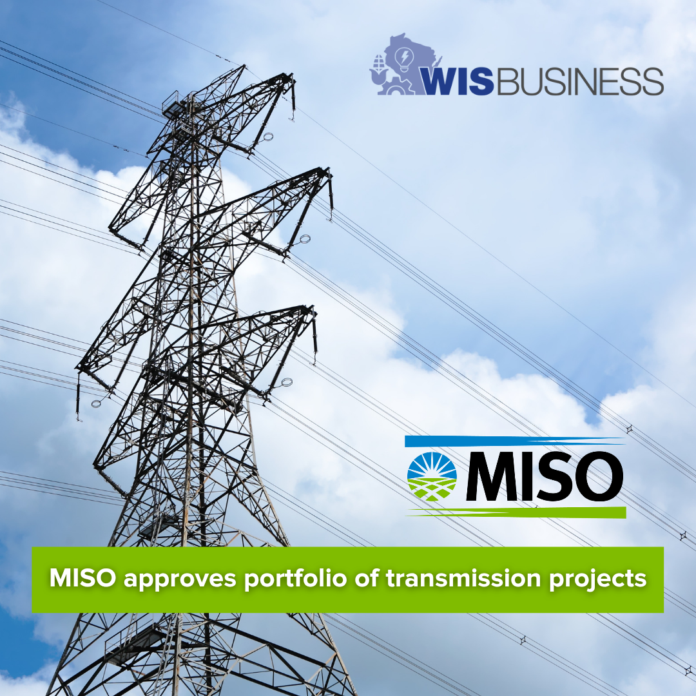The board for the regional transmission group MISO has OK’d a portfolio with dozens of projects, including several in Wisconsin, that will set the stage for further clean energy investments.
The Midcontinent Independent System Operator handles transmission planning and energy and capacity markets for more than a dozen U.S. states and the Canadian provice Manitoba.
In a recent release, MISO announced its board has approved the Long Range Transmission Planning Tranche 2.1, which includes 23 projects totaling 3,631 miles for regional projects in the Midwest subregion.
The $21.8 billion portfolio’s projects have “benefits potential exceeding $72 billion,” according to the organization’s overview. Projects in Wisconsin are expected to bring 24,000 jobs to the state and have a total economic output of $4.5 billion, according to Clean Wisconsin.
Meanwhile, the board also greenlit 459 local reliability projects totaling 932 miles and $6.7 billion, aimed at improving infrastructure and meeting load growth needs locally.
Clean Wisconsin is touting MISO’s approval of the plan, noting it will support at least 6.6 gigawatts of wind and solar power in Wisconsin, more than double the amount of clean energy currently produced in the state. The group notes all projects will need to be approved by state regulatory agencies, such as Wisconsin’s Public Service Commission.
Ciaran Gallagher, energy and air manager for the Madison-based nonprofit, says more transmission lines will “directly enable a clean electricity future.”
“These lines are vital to support the clean energy projects that are increasingly powering Wisconsin’s economy,” Gallagher said in a statement. “Without this investment, we’ll end up with more harmful coal and gas, higher energy bills, and a greater risk of power outages.”
Six of the transmission projects will be located entirely or partially in Wisconsin, according to Clean Wisconsin, and MISO estimates every dollar spent on these projects in the state will result in up to $5.40 in benefits.
The tranche’s approval comes as MISO is facing new challenges, with more extreme weather events and the clean energy transition putting new stresses on the electricity grid. That’s according to Bob Kuzman, MISO’s director of external affairs for the central region, who spoke during a recent meeting of the 2024 Legislative Council Study Committee on the Regulation of Artificial Intelligence in Wisconsin.
“We’re trying to build as much transmission as we possibly can as we get new and innovative resources on the system,” he said earlier this month.
To support those efforts, MISO is using AI to automate forecasting and capacity projections, understand future load growth further out and prepare to meet that demand. Kuzman noted data centers, such as Microsoft’s planned $3.3 billion project in southeastern Wisconsin, are “grabbing everbody’s attention” due to their rising energy requirements.
He touted the ability of AI to “help us forecast that growth, and also help us … make sure we have the right generation on at all times, no matter what type of fuel mix it is.”
See the release.






